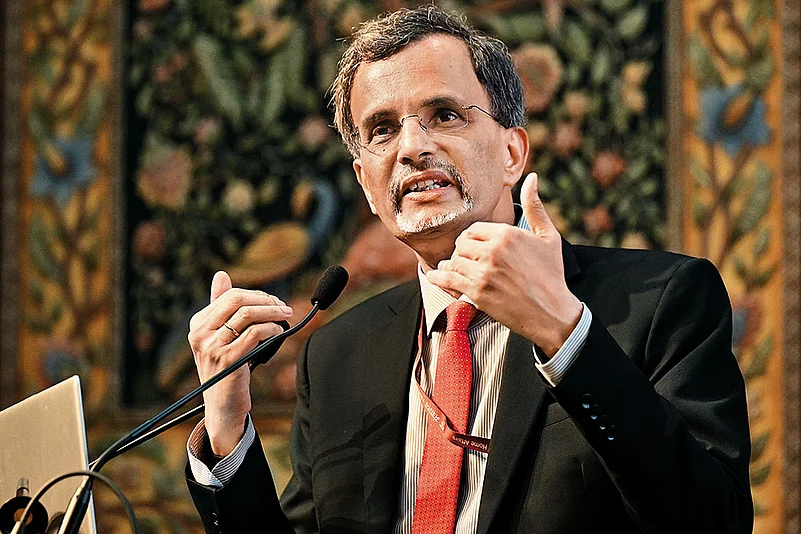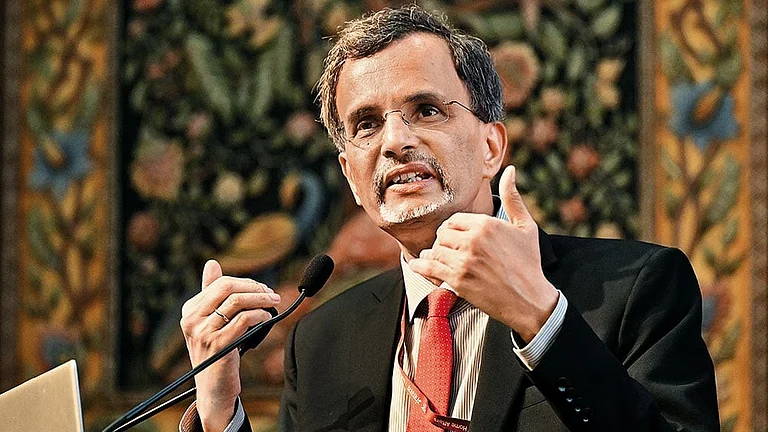What can the government do to get start-ups that moved their headquarters abroad back?
Many businesses that once relocated [to other countries] for tax purposes have now moved back. We noted this trend in the January 2023 Economic Survey. Today it is no longer a major concern as we have seen reverse migration of businesses happening to India.
Regarding the global economic order, long-standing assumptions such as free trade, unrestricted capital flows and absence of industrial policy are making way for more pragmatic, context-driven approaches in developed economies. Previously, when such policies were followed, India’s economic size and influence were relatively smaller.
Now, with developed nations shifting away from their earlier stance and India’s economic strength growing, the country has a chance to shape global policy narratives—not just for itself but also for the broader developing world.
However, India’s unique position, with its scale, democratic framework and federal structure, makes this task more complex. The country must carve out a policy path suited to its distinct needs.
China is trying to get its own talent back. Should India try something similar?
I agree and I think we are doing that. We should see them [Indians working in the US and Europe] as a ‘brain bank’ rather than [their leaving] as ‘brain drain’. This shift is happening through policy initiatives and their natural and cultural ties to India.
Many collaborations are happening, including the semiconductor mission and the fact that mobile phone electronics has moved to India. In certain ways, the diaspora has contributed to some of these developments.
There are countries which lack abundant high-tech talent who are looking for Indians to fill those gaps. Is that a concern?
I don’t think this is a win-lose situation. It can be a win-win. Given India’s demographic strength, there is ample talent for domestic growth and global participation. The diaspora serves as a ‘brain bank’, as I said, fostering knowledge exchange.
Capital and talent naturally flow where opportunities arise, a pattern seen across centuries. Rather than viewing it as a concern, it should be welcomed for the perspectives and expertise it brings back. At the same time, India has enough homegrown talent to drive its own progress.
You have spoken about India Inc’s low and concentrated R&D spend. Why is that the case?
It is difficult to provide causal explanations, as multiple factors could contribute to such phenomena. Reducing a complex issue to a simple explanation would not be accurate. One possible factor could be the lack of necessity for long-term thinking in a country where demand remains constantly high due to its large size.
However, to be globally competitive—especially with security considerations becoming more relevant—domestic resilience must be developed.
" Given India's demographic strength, there is ample talent for domestic growth and global participation"
Can the private sector realise that without a government nudge?
A few days ago, there was a detailed media report on how some American businesses have shifted focus away from innovation, prioritising quarterly earnings instead. There are many successful companies that allocate up to 5% of their sales to R&D. It is all about the horizon over which you seek to maximise your returns.
This issue is not unique to India. Globally, corporate leadership often operates on shorter cycles, while R&D pay offs take much longer. Bridging this gap requires a combination of visionary thinking, strategic board-level decisions and a long-term approach to R&D.
How can industry-government-academia collaborations help?
Naturally, industry challenges become research questions for academia. [But] while problem-solving research is essential, we also need blue-sky thinking—innovation driven purely by human creativity, without an immediate, practical application.
Both are necessary. Original research pushes boundaries, while applied research addresses pressing issues like nutrition, pollution, groundwater recharge, urban waste management, land fertility and air quality—such as the stubble-burning problem affecting Delhi’s air in November and December. Collaboration is required in [all] these areas.
Deregulation was one of the themes of the Economic Survey. How will deregulation drive innovation?
Innovation is driven by various factors, including R&D, access to advanced equipment and chemicals and movement of trained scientific personnel across borders. Regulations influence both innovation and business operations. In India, significant progress has been made.
Some sectors have advanced while others have received less attention due to various reasons. The focus is on identifying these gaps and bringing them into policy discussions, which is precisely what the Economic Survey seeks to achieve.












